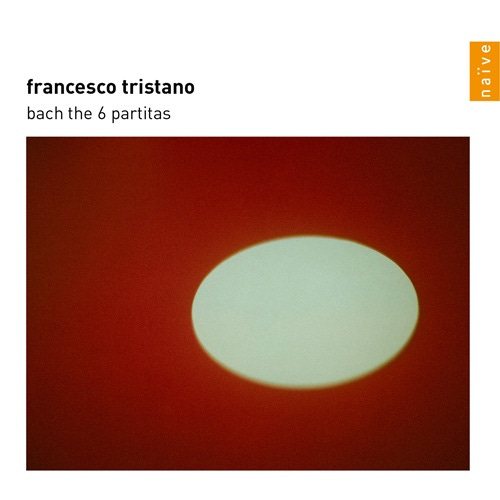Francesco Tristano - Bach: The 6 Partitas
(Naïve Records, 2024)
Johann Sebastian Bach's Partitas, BWV 825–830, form a collection of six keyboard suites. Beginning in 1726, Bach published the Partitas separately; in 1731, he compiled and released them in a single volume, his first self-published collection. Of note, despite their significance, these suites were among the last keyboard suites Bach composed. His earlier works in this genre include the six English Suites (BWV 806–811), composed between 1713 and 1720; the six French Suites (BWV 812–817), composed between 1722 and 1725; and the Overture in the French Style (BWV 831), published in 1735.
Luxembourg-born, Juilliard-trained pianist Francesco Tristano embodies the phrase “an embarrassment of riches.” Twenty years ago, the pianist began his Bach journey auspiciously, with Goldberg Variations (Accord, 2002) and the Complete Piano Concertos, recorded with his ensemble The New Bach Players. Then, Tristano took a hard left into composition and producing, balancing distinct yet interconnected artistic pursuits. Tristano travels the world showcasing both baroque and contemporary repertoire. He produces dance tracks for electronic music labels while pursuing his ambitious goal of recording Johann Sebastian Bach’s complete piano works. He crafts albums infused with personal narratives, delving into the piano’s expressive depth and tonal richness.
Ten years hence, Tristano touches the master again while recording on Deutsche Grammophon with the provocative bachCage (2011) and Long Walk: Francesco Tristano Plays Buxtehude, Bach, and Tristano (2012), after which he returned to his eutection of contemporary, electronica, and classical musics. In 2024, Tristano has returned to his journey back to Bach with his release of bach the 6 partitas, his first release of his continuing march through Bach’s keyboard works. Tristano will follow his Partitas with Bach’s 6 English Suites in Spring 2025, with the project continuing a few months later with the releases of Bach’s 7 Toccatas (BWV 910-916) in the fall of 2025 and the 6 French Suites in 2026.
Tristano’s Partitas enter an already crowded field that includes recordings (on piano) by Glenn Gould (Sony, 1957 & 1980), András Schiff (Decca Classics, 1985 & ECM, 2009), and Murray Perahia (2008 & 2009). These performances cast long shadows, but not long enough to obscure the technical accomplishment and scintillating brilliance of Tristano’s fine readings. His 2022 release, On Early Music (Sony Classical), an exceptional recording by any measure, featuring pieces by Girolamo Frescobaldi, Peter Philips, John Bull, and Orlando Gibbons, primed Tristano, fully warming him up to continue his Bach journey.
Tristano’s approach to the Partitas is readily commanding and appropriately reverent. The pianist brings a delicate muscularity and measured precision disguised in his abundantly evident virtuosity. There is much to recommend these Partitas if the listener is new to them. For more experienced listeners, much depends on personal preferences in performance of this canon. Tristano’s contribution is the splash of water added that opens these aged and revered pieces up to new and continued consideration.



